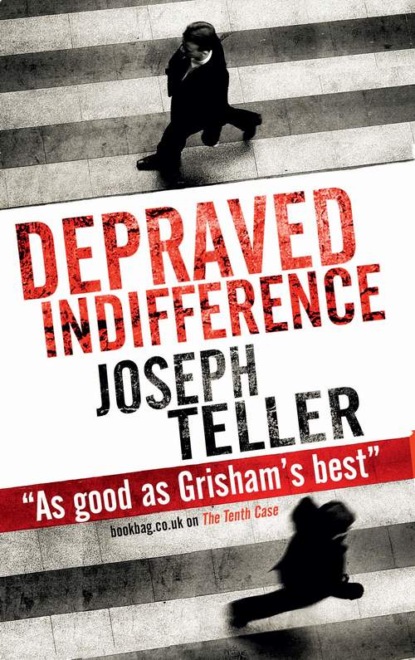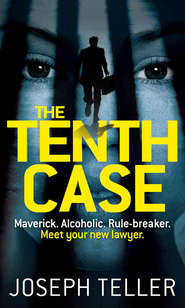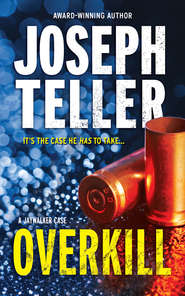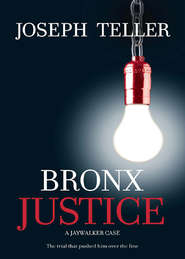По всем вопросам обращайтесь на: info@litportal.ru
(©) 2003-2024.
✖
Depraved Indifference
Автор
Год написания книги
2018
Настройки чтения
Размер шрифта
Высота строк
Поля
He allowed himself another hit of the joint.
Yeah, investigating would be just fine.
He broke the news to Amanda two days later. They met at the same luncheonette they’d gone to from the library. She looked every bit as stunning as he’d remembered her, and he found himself powerless to keep his eyes off her. He managed somewhat better when it came to his hands, but it was hard. Keeping his hands off her, that is.
This time they had lunch instead of just coffee, she a fancy wrap of some sort, he a tuna-fish sandwich. As they ate, he outlined his plan, and Amanda was quick to approve it. And that was pretty much it. Unlike the events of two days earlier, they didn’t follow things up with a cab ride to Amanda’s apartment. And if Jaywalker was disappointed in that nonde-velopment, and surely he was, he was at least consoled by the fact that he came away from the meeting with a check in the pocket of his jeans in the amount of five thousand dollars, exactly twice what he’d asked Amanda for. He’d instructed her to make it out to “Harrison Jay Walker, Private Investigator,” and had made her fill in the Memo blank with the words “Not for legal services.”
You could never be too careful.
But even if he was only an investigator for the time being, Jaywalker knew better. He was back in the game.
Chapter Three
Five Tiny Fingers
The very first thing Jaywalker did the following morning was to pay a visit to his bank. There he endorsed and deposited the five-thousand-dollar check Amanda Drake had given him. As soon as the teller had completed the transaction, he asked her for his current balance. She tapped some keys on her computer and handed him a slip of paper. There were a bunch of numbers on it, showing which funds were available, which weren’t, and when they would be. But he chose to ignore the qualifiers, and went right to the bottom line, which included Amanda’s check: $5,176.24
It had been that close.
After that, Jaywalker the Investigator got to work. He started off by making a visit to the scene. Not the scene of the crime—or accident, as he preferred to call it—where the van had been run off the road. That would come, but for now it could wait. Instead, he returned to the scene of his first meeting with Amanda, the Forty-second Street branch of the New York Public Library. There he went to the newspaper archives room and pulled up on a microfiche screen all the articles he could find on the crash, the surrender and arrest of Carter Drake, and the developments that had occurred since. Had he been a better navigator of the Internet, he probably could have found them on his computer. But he was stubbornly old-fashioned at times, Jaywalker was, and besides, he loved the archives room. He figured it was as good a place as any to get an overview of things, a starting point before he began to dig for details and tried to get first-person accounts.
As overviews go, it turned out to be pretty devastating stuff for the home team.
The photos of the burned van, and of the immediate area where it had come to rest, were hard to look at. Jaywalker could only guess at the ones that had been kept out of the papers, that the editors had deemed too graphic to print. He’d see those later, no doubt, with the police reports. There’d be charred bodies, charred tiny bodies. He shuddered at the thought, shuddered again at the jurors’ reactions to the carnage.
Several of the papers had run with the early rumors of a terrorist cell and the premature detonation of an explosive device, or of a van overcrowded with undocumented migrant apple pickers. Only with the following day’s editions had the truth come out, that eight of the nine dead were young children enrolled at one of New City’s several yeshivas, or Jewish religious schools. There were interviews with the driver of the pickup truck who’d stopped to offer assistance, including his account of the car that had run the van off the road. Looking for the public’s help, the police had released the partial license plate ending in 724 and were imploring other witnesses to come forward. Then, in the next day’s accounts, there was the surrender of Carter Drake and his arrest, as well as some brief comments by his “business attorney.” Jaywalker paused to smile at the phrase. There were business attorneys, patent attorneys, corporate attorneys, trust and estate attorneys, even admiralty attorneys. But when things got truly nasty, you were well advised to go out and get yourself a criminal lawyer. All of a sudden, it was a lawyer you needed. Down in the trenches, there was no room for attorneys.
“Mr. Drake is guilty of absolutely nothing,” the business attorney had said. “He hadn’t been drinking, and he wasn’t speeding. He momentarily lost control of his vehicle. As unfortunate and tragic as the results were—and our hearts go out to the victims and their families—it was an accident, pure and simple. An accident.”
The judge who’d set Carter Drake’s bail at five million dollars had apparently begged to differ.
The newspaper stories had continued for almost a week. There were interviews with grieving parents and outraged school officials. There were calls for tighter seat-belt laws and looser seat-belt laws, the proponents of the latter camp arguing that some of the children might have escaped the fire had they not been restrained, though a look at the extent of the damage shown in the photos strongly suggested otherwise. And there were the funerals, the terrible funerals, accompanied by snapshots of tiny faces smiling out at the camera in happier times.
After that, the coverage dwindled and all but stopped. The exception was the Rockland County Register, which ran editorials daily for nearly three weeks, demanding restoration of the death penalty, “complete with excruciating suffering” for the “cold-blooded killer” of the community’s “most treasured and vulnerable citizens.”
It was midafternoon by the time Jaywalker emerged from the library. He found himself startled by the sudden brightness of the sunshine, and it took his eyes a few moments to make the adjustment. It reminded him of coming out of the movies after a matinee, something he hadn’t done since his wife’s death, a dozen years ago.
He found a phone booth, no mean feat in the Age of the Cell Phone. But Jaywalker had long resisted the ads that promised a powerful network, five bars, and unlimited nighttime and weekend minutes with family and friends. He figured that if he lived long enough, he might just be the last holdout on the planet. Sure, going phoneless meant being inconvenienced from time to time, but that was a small price to pay for the retention of his privacy. Besides, now was no time to get connected, or whatever it was they called it, not while he was still suspended and trying to fly beneath the radar.
Jaywalker had gotten the name of Carter Drake’s business attorney from his newspaper research and found a phone number for him on the Internet. Now he dropped a Samoan penny into the coin slot—they just happened to be the same size as U.S. quarters, so he’d ordered a hundred of them through a Times Square coin dealer for three dollars—and dialed the number.
“PetersonKellnerWhiteandTayler,” said a woman’s voice, as if it were all one name. “How may I direct your call?”
“I’m trying to reach Chester Ludlow,” said Jaywalker.
“Please hold for his administrative aide.”
Jaywalker held, wondering where he’d been while secretaries had turned into administrative aides.
“Mr. Ludlow’s office,” said another female voice.
Jaywalker identified himself and stated his business. If he’d thought doing so might open doors, he was in for a surprise. Over the next fifteen minutes, he sparred first with the administrative aide, and then with a young man who described himself as Ludlow’s executive assistant. Yes, Mr. Ludlow would be more than happy to take a meeting with him, but he billed out at seven hundred and fifty dollars an hour, payable in advance.
“How about six minutes?” Jaywalker asked. He’d neglected to discuss expenses with Amanda, and wasn’t about to spend seven hundred and fifty dollars of his own money, or hers, either—at least not without checking with her first. On the other hand, he figured shelling out seventy-five bucks for a tenth of an hour…
The executive assistant was evidently not amused.
Eventually they settled on a five-minute phone conference, pro bono. Jaywalker was instructed to call Chet back the following day, at 10:15 a.m. “Not any earlier, not any later.”
Fuck you! Jaywalker wanted to say. And fuck Chet, too. Instead he said, “Thank you very much,” and hung up.
Maybe it wasn’t going to be such a picnic after all, this investigator gig.
Next he called Carter Drake’s current lawyer up in New City, a man named Judah Mermelstein. The Samoan pennies were too cumbersome for the job, not to mention too precious, so he used a calling card.
Mermelstein answered his own phone, a sure sign that he was user-friendly and a good indication that he worked on a shoestring budget. Both were attributes that Jaywalker was quite familiar with. As he had with Chester Ludlow’s staff, he explained his business and said he’d like to meet with Mermelstein.
“Sure, sure. C’mon up.”
They agreed on one o’clock the following day. Jaywalker didn’t want to jeopardize his five-minute phone conference with Chet, after all.
The following morning’s five-minute phone conference with Chester Ludlow went pretty much as Jaywalker had expected. Ludlow was brusque, dismissive and completely uninformative. Carter Drake, for whom he’d been doing some complicated mergers-and-acquisi-tions work—the implication being that it was well beyond Jaywalker’s understanding—had phoned the office and said he was the “Audi Assassin,” and that he wanted to turn himself in before the police figured out he was the one they were looking for and came to arrest him. Ludlow had agreed and had accompanied him to state police headquarters. He’d had no idea where it was, he added, “So I set the GPS on my car. We got there, and they took him into custody. And that was pretty much it. Now,” he said, clearing his throat loudly, “if you’ll excuse me, I have a meeting—”
“I still have nineteen seconds,” Jaywalker pointed out. Actually, he had no idea how long they’d been talking, but he doubted that Ludlow did, either. “What was the basis of your comment to the press,” he asked, “that Drake hadn’t been drinking or speeding prior to the accident?”
“I’m not sure what you mean.”
“I mean,” said Jaywalker, “did Drake actually tell you those things?”
“Drake? No, of course not. As a matter of fact, I never discussed that with him. I had our media department draw up a statement. They’re real pros at that sort of stuff. It’s what they do.”
Great, thought Jaywalker, trial by sound bite. He wanted to ask Ludlow if he had any idea of the damage such a remark could do to Drake’s chances down the line. But he knew he was already into overtime. “Thanks for your time,” he said, and hung up.
The good news was that Ludlow had given him the five minutes pro bono. The bad news was that Jaywalker had pretty much gotten his money’s worth.
The meeting with Judah Mermelstein went somewhat better. It had taken Jaywalker only forty-five minutes to get to Mermelstein’s office, if you didn’t count the two hours spent locating his ancient Mercury in its parking lot, finding a set of booster cables ($14.95), getting a jump start from an obliging cabbie ($10), and coaxing the relic out onto the West Side Highway (priceless).
The first thing Jaywalker noticed about Mermelstein wasn’t his boyish good looks, his black suit, white shirt and conservative tie, or even his firm handshake. It was his yarmulke.
“Do they let you wear that?” Jaywalker asked. “I mean, in court? At trial?” He’d once known a legal aid lawyer in Brooklyn who was also a Catholic priest, and they’d let him wear his clerical collar in court. But all the guy ever did was arraignments; he never went to trial.
“Absolutely,” said Mermelstein. “U.S. Supreme Court, First and Fourteenth Amendments. Freedom of religion, freedom of speech, expression, association, wardrobe, warmth. Not to mention the little-known but all-important freedom to cover one’s bald spot.”
“Cool,” was all Jaywalker could come up with. It was something his daughter might have said, back when she was, oh, seven or so. But it was cool, and he couldn’t help picturing himself delivering a summation before a home-crowd New City jury, two rows of black-dressed orthodox Jews. Jaywalker was half-Jewish himself, after all, even if he hadn’t seen the inside of a synagogue in a good twenty years. But that gave him the right, didn’t it? And if he were to dig through the side pockets of his suit jackets, chances were pretty good he’d find a yarmulke or two, left over from a long-ago funeral, or a bar mitzvah he hadn’t been able to get out of.
“I understand Mrs. Drake has hired you as a private investigator in her husband’s case,” said Mermelstein, once the two of them had taken seats facing each other across his desk. That experience itself had been momentarily unsettling for Jaywalker, who’d spent twenty-some years sitting in the lawyer’s chair, not the client’s.
“Yes, she has,” said Jaywalker. “But I think you also ought to know that it’s her hope that if the case has to be tried, I should be the one to try it. If the court doesn’t force it to trial before my, uh, suspension is up, that is.”








